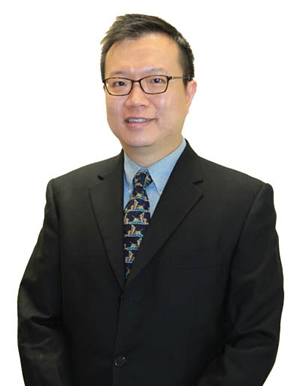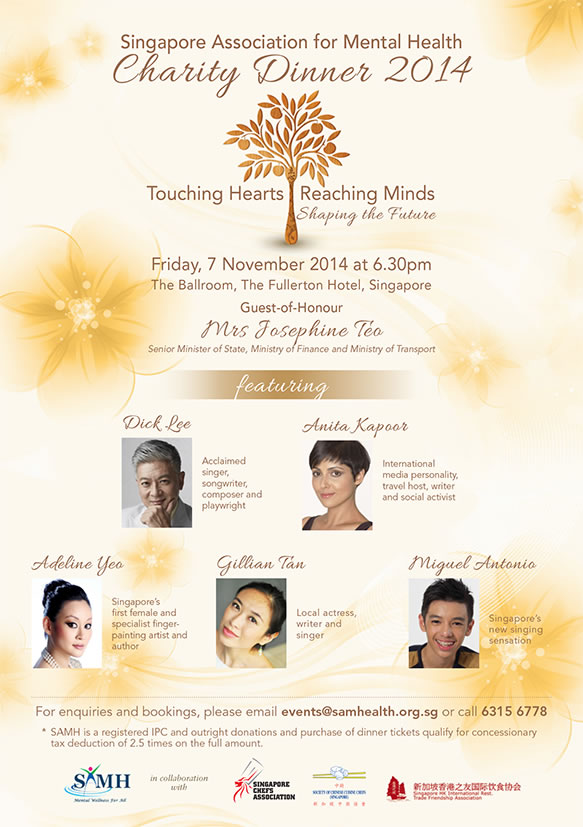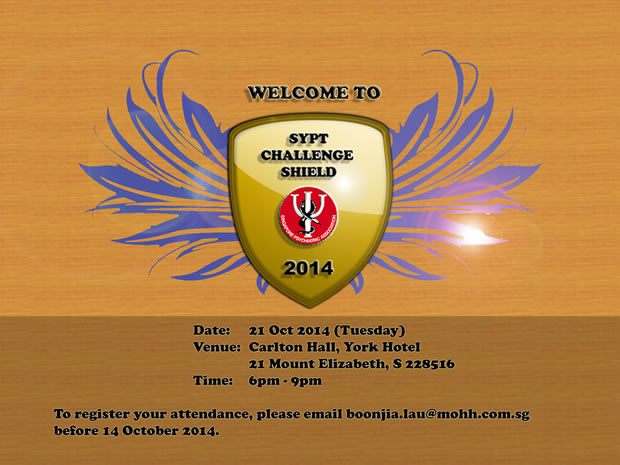October 2014
Please register by 14 Oct 2014, email to boonjia.lau@mohh.com.sg
The International Association for Women’s Mental Health, in conjunction with the Institute of Women’s Mental Health, Tokyo Women’s Medical University, cordially invites you to participate in the 6th World Congress on Women’s Mental Health to be held in Tokyo, March 22 to 25, 2015.

For more information, please visit the event website at http://www.congre.co.jp/iawmh2015/
Written by: Dr Ong Say How, Vice-President, Singapore Psychiatric Association
 As the vice-president of Singapore Psychiatric Association, my day-to-day professional responsibility is that of being the Chief of the Department of Child & Adolescent Psychiatry in the Institute of Mental Health. Bearing this leadership role for slightly more than three years, I discovered that there is no easy guide or reference to teach me ropes of becoming a great leader or manager in my field. Managing a large department with close to 100 clinical and administrative staff is daunting and no one trains you for that. Trouble-shooting, fire-fighting and performing service recovery has become quite a commonplace nowadays. Some time back, I had the opportunity to hear about several management courses designed for senior clinicians, and a colleague of mine who attended one recommended Harvard Business School because they have a specific management course targeting healthcare professionals. Harvard’s ranking internationally also played a part in my course selection. I was fortunate to be able to go for the course as the year saw many HMDP applications.
As the vice-president of Singapore Psychiatric Association, my day-to-day professional responsibility is that of being the Chief of the Department of Child & Adolescent Psychiatry in the Institute of Mental Health. Bearing this leadership role for slightly more than three years, I discovered that there is no easy guide or reference to teach me ropes of becoming a great leader or manager in my field. Managing a large department with close to 100 clinical and administrative staff is daunting and no one trains you for that. Trouble-shooting, fire-fighting and performing service recovery has become quite a commonplace nowadays. Some time back, I had the opportunity to hear about several management courses designed for senior clinicians, and a colleague of mine who attended one recommended Harvard Business School because they have a specific management course targeting healthcare professionals. Harvard’s ranking internationally also played a part in my course selection. I was fortunate to be able to go for the course as the year saw many HMDP applications.
The 5-day course which I attended in Paris, Harvard’s overseas training location for the international attendees, was entitled “Leading High Performance Healthcare Organization”. It was intensive with multiple case studies as well as role playing and breakout groups every morning to allow various teams to have their preliminary discussions over breakfast before coming together for sharing and class participation. These case studies were compulsory pre-course reading and in order to truly benefit from the course, one is strongly encouraged to read them thoroughly, analyze the information critically and to formulate responses to the challenges and questions posed by each of the case studies. I find the case studies extremely useful because they were real life situations or events that big corporate companies and hospitals experience and go through, several were not dissimilar to our local setting. Some were personal life experiences that occurred outside an organization’s structure such as the tragic Mount Everest climb, and the Chilean coal mining incident in 2010 that celebrated human resilience and brilliance.
What I learnt from the course was about the importance of clear objectives and directions so that we do not lose sight of our hospital’s visions. The course did not intend to inform us on what is the best solution for every situation, but helped us develop necessary analytical skills to formulate action plans that would attempt to address these concerns. Throughout the course, good lessons were learnt from one another as attendees shared their analyses of the case studies and their opinions. It is hoped that this learning continues in the form of email networking so that we share and learn the best methods to overcome problems.
Most of what I learnt from the course was soft skills, which could be applied to all aspects of my work, be they administrative, managerial or clinical. What I appreciate more now would be working with a core team of highly effective staff. Since my return, I have shared about my learning experience with my department and initiated operational changes for better running of the department both in areas of administration and clinical services. Skills and knowledge learnt could also be applied to future strategic planning of the department. Learning to be a highly effective leader in healthcare henceforth has become a continuing journey for me.


